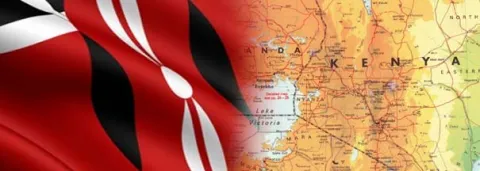Lethbridge Educators Experience Teaching in Rural Kenya


Story courtesy of Caroline Zentner, Lethbridge Herald
czentner@lethbridgeherald.com
A trip to Kenya with A Better World Canada gave a team of Lethbridge educators the chance to support teachers who don’t have access to modern teaching resources or even electricity.
Sue Bengry, an instructor in the Faculty of Education at the University of Lethbridge, said the trip was part of the Journeys of Hope Teaching Tour offered through A Better World, a volunteer-managed international development organization based in Lacombe. The goal of the organization is to help communities help themselves by giving people the opportunity to plan, grow and build, instead of investing money and labour.
“It was quite challenging actually to take all of our technology and go backwards and say ‘Now, how do you teach without all of that technology?’ It was such a good experience,” she said.
The group was there for two weeks and visited an orphanage and six rural schools, most of them in poor areas.
“We would travel anywhere from 45 minutes to an hour and a half a day to get to a school over all kinds of roads.”
In the morning they would either watch the teachers teaching or teach themselves. Bengry said a teachers’ strike was on so some teachers weren’t in attendance.
“Even though they were on strike lots of them came in to see how we taught so we were providing them with a picture of what we do but we were also very cautious and cognizant of the fact we needed to respect how they were doing it, too. It’s very traditional and probably I would think 15 to 20 years behind in how we teach now,” Bengry said.
Class sizes ranged from 30 to 65 with three or four students to a desk. Some classes had blackboards painted on the wall and textbooks were shared among several students. Teaching followed a traditional style with the teacher at the front of the classroom and students learning by rote.
“We looked at differentiating instruction and having them use higher-order thinking with the kids to get them to do some of their own learning,” she said. “We had them working in groups, collaborating, doing compare and contrast activities.”
The students walked anywhere from two to 12 kilometres to get to school. They all wore school uniforms, some wore shoes and some were barefoot.
“And yet they came. They knew we were coming on certain days to their areas,” she said. “So their desire to learn is just incredible.”
The gap between rich and poor was very evident, Bengry said. The schools had no power, lighting or heating. Sometimes the school was a tin shack. A Better World has been working with local groups to fundraise to build schools in Kenya and Winston Churchill High School is one of them.
“It was just so rewarding overall because everybody was so gracious and so thankful for everything that you gave them even though you felt like you weren’t there long enough to give them very much,” Bengry said.
One of the schools was in the Maasai Mara region of Kenya where children walking to school could easily encounter all kinds of wild animals.
“They carry cellphones – everybody’s got a cellphone in Kenya – and if elephants or lions are stalking them or they come across them they phone and whoever in the village has a motorbike will jump on the motorbike and go out there and scare the wild animals off so the kids can continue walking,” Bengry said.
The Lethbridge team brought suitcases full of school supplies to leave at the schools, gathered with donations from several local schools and individuals.
In addition to Bengry, the Lethbridge contingent included Cynthia and Lyle Parr, Ingrid Morden and her son Chris, Marla Bloudoff, Christy Martens, Shelley Orr and Donna and Ron MacKay. They were representative of the Lethbridge public school district, Holy Spirit Catholic Schools and the U of L. Visit www.a-better-world.ca to view blog entries by the Parrs.
